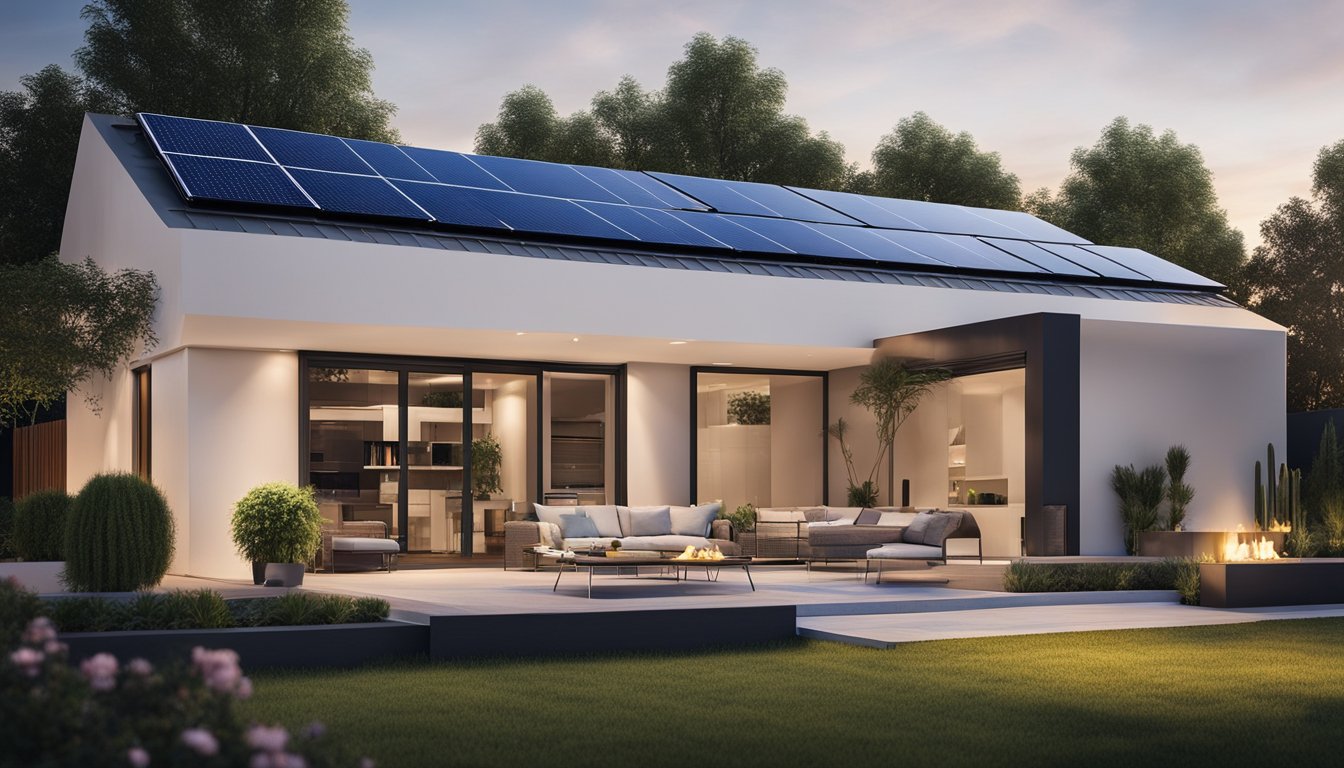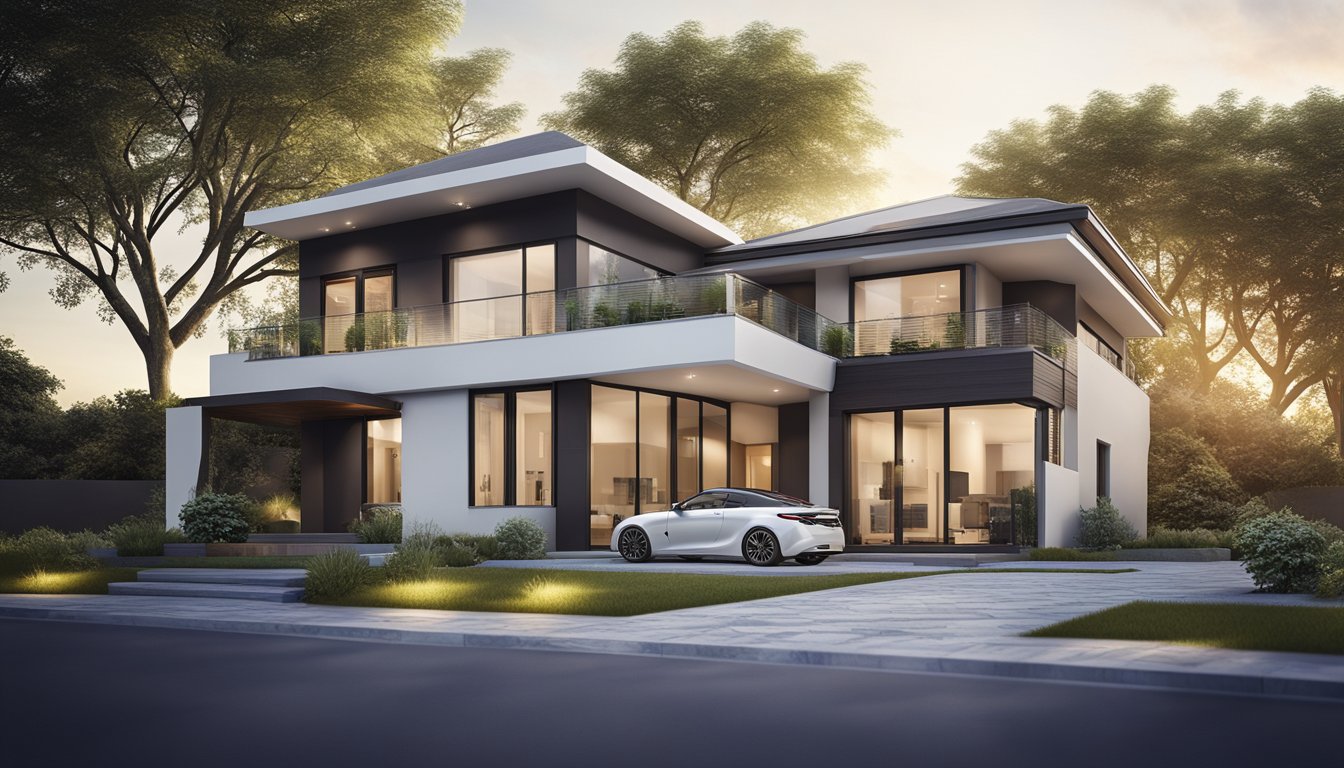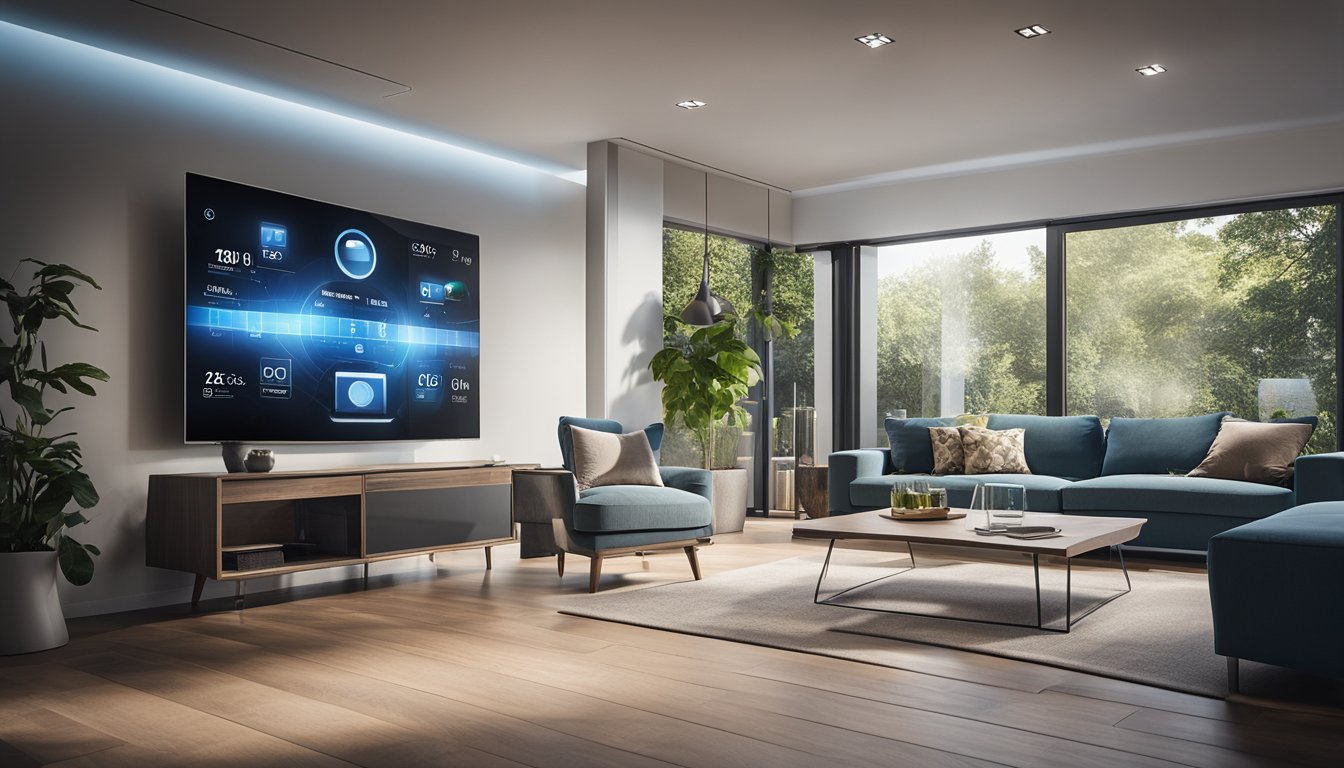Late updated: 20 Jan 2025 12:01
Written by: Daniel Harper
Innovative Smart Home Energy Solutions: Transforming Modern Living
In our pursuit of creating sustainable and efficient smart homes, we're witnessing a remarkable transformation in energy solutions. These technologies are not only impactful for reducing our carbon footprint but also play a crucial role in managing energy consumption effectively. Harnessing innovative smart home energy solutions empowers us to optimise energy usage, leading to significant cost savings and enhanced eco-friendliness.

With the rise of smart home technology, we're now equipped with tools ranging from smart meters to energy-efficient appliances that integrate seamlessly into our daily lives. These advancements address the pressing challenges of climate change while providing practical solutions for energy management. By embracing such technologies, we’re not only future-proofing our homes but also contributing to a more sustainable lifestyle.
Adopting state-of-the-art energy solutions allows us to monitor and control energy usage from anywhere, offering unprecedented convenience and adaptability. This innovative approach helps us better understand our consumption patterns and make informed decisions for energy conservation. As we explore the integration of these solutions, it becomes clear how they unlock the full potential of modern, efficient living.
Key Takeaways
- Smart homes optimise energy use for savings and sustainability.
- Energy-efficient appliances address climate change challenges.
- Innovative solutions offer control and adaptability in consumption.
Fundamentals of Smart Home Energy Management
Our exploration of smart home energy solutions focuses on understanding key components and technologies that optimise energy use. These include insights into energy consumption patterns, the application of IoT and machine learning, and the integration of renewable energy sources for more efficient home energy management.
Understanding Energy Consumption in Smart Homes
Energy consumption in smart homes is influenced by the deployment of smart devices and systems aimed at optimising efficiency. Smart meters provide real-time data on usage patterns, allowing homeowners to monitor and adjust their energy use proactively. This data-driven approach helps identify high-consumption areas and enables us to implement energy-efficient solutions tailored to our specific needs.
A significant component of smart home energy management systems is the ability to automate controls for lighting, heating, and cooling based on occupancy and preferences. By reducing unnecessary energy usage, we can lower our utility bills and contribute to overall energy efficiency. Such systems are vital for creating an efficient and sustainable home environment.
The Role of IoT and Machine Learning
The Internet of Things (IoT) plays a pivotal role in smart home energy management by connecting devices to create an intelligent network. These interconnected devices communicate effortlessly, enhancing the efficiency of our energy systems. IoT enables seamless automation and personalised energy management by collecting and sharing data across devices.
Machine learning algorithms are critical for analysing energy consumption data. These algorithms identify consumption trends, predict future usage patterns, and suggest optimised energy practices. This advanced technology enhances our ability to make informed decisions, allowing for better energy management and reduced waste, ultimately improving the functionality of smart home energy solutions.
Integrating Renewable Energy Sources
Incorporating renewable energy sources, such as solar panels, into our homes is a vital aspect of smart energy management systems. These sources not only reduce dependency on traditional power grids but also provide cleaner, sustainable energy. Smart technology facilitates the seamless integration of these resources, ensuring efficient energy conversion and usage within our homes.
Renewable source integration supports the balance between energy supply and demand, often through advanced smart grid systems. By using intelligent controls to manage energy storage and distribution, we can maximise the benefits of renewables. This integration is key to achieving long-term sustainability and energy independence in smart homes.
Implementing Energy-Efficient Solutions in Homes

Improving energy efficiency in homes not only reduces electricity bills but also lowers carbon emissions. By leveraging smart technologies, we achieve a more sustainable lifestyle and enhance comfort within our dwellings.
Smart Thermostats and HVAC Systems
Smart thermostats are a key innovation in managing residential energy use. They learn our daily routines, adjusting temperatures accordingly, which optimises HVAC systems. As a result, we reduce energy consumption and achieve cost savings.
Interoperability with other smart devices through home automation systems further enhances effectiveness. These devices provide real-time energy consumption data and insights, enabling us to monitor usage closely. Connecting to the smart grid, they participate in demand response programmes, making energy use more flexible and efficient.
Advanced Lighting and Appliance Control
Energy-efficient lighting, especially LED technology, plays a critical role in reducing consumption in homes. Smart lighting systems allow us to control lights remotely, ensuring they're only on when needed. This can decrease electricity usage considerably.
Smart plugs, when paired with energy-efficient appliances, provide additional savings. They offer control over when appliances are active, aligning with off-peak times as suggested by energy monitoring systems. Such advanced control reduces a home's carbon footprint and contributes to sustainable solutions.
Home Automation for Efficiency and Comfort
Home automation systems integrate various energy solutions, enhancing both efficiency and comfort. By automating routines, we ensure seamless operation of energy-efficient devices at optimal times.
These systems, combined with energy monitoring, offer real-time information on usage, helping us make informed decisions. The integration with emerging technologies, like blockchain technology, supports secure data exchange and further optimises energy infrastructure. Electric vehicles can also be managed efficiently, coordinating charging sessions with times of lower demand.
Experience in smart home automation ensures that we harness energy savings while maintaining a comfortable and enjoyable living environment. Through strategic implementation, we can significantly reduce waste and support sustainable living practices.
Frequently Asked Questions

In the realm of smart home energy solutions, our focus is on how significant advancements can lead to improved energy efficiency, reduced costs, and sustainable living. We explore various aspects, from latest technologies to practical tactics for maximising energy savings using smart devices.
How can smart home devices contribute to overall energy efficiency?
Smart home devices enhance energy efficiency through automation and remote control. By enabling precise control over heating, lighting, and appliances, these systems minimise energy waste. For instance, smart thermostats adjust temperatures based on occupancy, reducing unnecessary energy use.
What are the latest advancements in smart home energy management systems?
Current advancements include integration with renewable energy sources and improved user interfaces. Systems now utilise machine learning to predict energy consumption patterns, thus optimising power usage. Enhanced connectivity with smart meters provides real-time data for better energy management.
What tactics can be employed to maximise energy savings using smart technology at home?
To maximise savings, we should implement automated schedules for devices and utilise energy-efficient settings. Additionally, monitoring energy usage through smart apps helps identify areas for improvement. Integrating smart plugs and sensors further aids in reducing standby power consumption.
Which home appliances offer the best energy-saving capabilities when integrated with smart systems?
Smart thermostats and lighting systems prominently feature energy-saving capabilities. When these are integrated with smart systems, efficiency is notably increased. Smart power strips also prevent unnecessary power drainage from idle equipment, contributing to savings.
How does the use of smart technology in homes affect energy consumption statistics?
Adopting smart technology significantly decreases energy consumption. According to recent studies, households report reductions of up to 33% in energy usage after integrating smart systems. This technology offers insights into usage patterns, facilitating further decreases in energy utilisation.
What are some effective energy-saving technologies currently available for residential use?
Available technologies include smart meters, programmable thermostats, and energy management dashboards. Solar panels coupled with home battery storage solutions also stand as effective options. These technologies collectively contribute to lowering residential energy costs while promoting sustainability.
